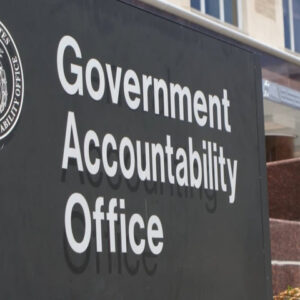The U.S. Government Accountability Office says the nation’s unemployment insurance system is at “High Risk” for waste, fraud, and abuse following a troubling new report revealing billions of taxpayer dollars have been lost.
“Based on GAO’s findings—including many open recommendations in this area—GAO has determined that the unemployment insurance system should be added to GAO’s High-Risk List,” it writes. “Leaving these issues unaddressed will heighten the risk of the UI system not meeting fundamental program expectations of serving workers and the broader economy, and may undermine public confidence in the responsible stewardship of government funds.”
The 86-page report found the pandemic exacerbated existing challenges within the Department of Labor’s unemployment insurance system. During that time, the rate of improper payments more than doubled—from 9.2 percent in 2020 to 18.9 percent in 2021.
The Department of Labor reports a total of $873 billion in COVID-related federal unemployment relief has been paid since the pandemic began. It estimates $163 billion has been lost to fraud or incompetence. However, outside experts like Woody Talcove of LexisNexis estimate $250 billion have been lost in improper payments.
But with the GAO reporting that “states have struggled with incomplete reporting of billions of dollars in identified overpayments,” the true level of loss will likely never be known.
Increased identity theft has been named as a leading cause of unemployment fraud in the CARES Act unemployment insurance program by GAO.
At least 149 individuals pleaded guilty to defrauding UI programs from March 2020 to January of this year.
While identity theft is a primary concern, the GAO points to many long-standing issues that have remained unaddressed such as timely claims processing, customer service, and the need to modernize IT systems.
In March 2021, House and Ways Committee Democrats unanimously rejected an amendment proposed by then-Rep. Devin Nunes (R-Calif.) that would have required states to verify identity and to receive documentation of prior wages of applicants before sending benefits.
In February of this year, the Biden administration released new guidelines waiving the burden on states to recover federal monies wrongly paid out as part of COVID unemployment relief. Congressional Republicans responded with a letter to Labor Secretary Marty Walsh warning that policy would result in more fraud and abuse of the system.
According to the letter, self-certification and individual assertions of eligibility–not employer documentation or other proof–would become the cornerstone of repayment waivers. The Department of Labor’s Employment and Training Administration’s new guidelines would not challenge an individual who responded “no” to being able and available for work, and they would be entitled to a blanket waiver of recovery for receiving an excess of payments.
That loophole could allow fraudsters to continue their abuse of the UI system, and leave hundreds of thousands of claims involving stolen identities to go unresolved.
Unemployment investigations currently account for 94 percent of the Office of Inspector General’s investigative case inventory. Prior to the pandemic, it was approximately 11 percent.
The new guidelines also let states off the hook for improper payments in which the state made the mistake either through a miscalculation or improperly filing information.
Gene L. Dodaro, Comptroller General of the United States, says the widespread problems affecting the unemployment system are troubling.
“Not only is the system falling short in meeting the needs of workers and the broader economy, but the potential for huge financial losses could undermine public confidence in the stewardship of government funds,” Dodaro said.
The American Rescue Plan Act made it easier for unemployment funds to be accessed without identity verification. In May 2021, the Treasury Inspector General for Tax Administration reported the IRS distributed $13 million in funds from the plan to dead people.
In March, Associate Deputy Attorney General Kevin Chambers was appointed to serve as Director for COVID-19 Fraud Enforcement, or the “Chief Pandemic Prosecutor.”
House Republican leadership members have raised questions about Chambers’ appointment in a letter to Attorney General Merrick Garland, demanding to know the scope and scale of his investigative powers. The administration claimed it had called on Congress to provide the resources this new task force needs, it noted, but no funds were requested in Biden’s Fiscal Year 2023 budget proposal.
Republicans also questioned what tasks the Director for COVID-19 Fraud Enforcement will perform that are not already being addressed by the Justice Department and its COVID-19 Fraud Enforcement Task Force.
Ranking member of the House Means and Ways Committee Kevin Brady (R-Texas) declared pandemic-related unemployment fraud the greatest theft of tax dollars in American history.
“With outside estimates of up to $400 billion, this fraud by organized cybercrime and international crime rings could represent half of all the COVID unemployment aid, or more than the entire 2021 budgets of the Army and Navy combined,” Brady said.
Only 2.4 percent of wrongful payments have been recovered.

